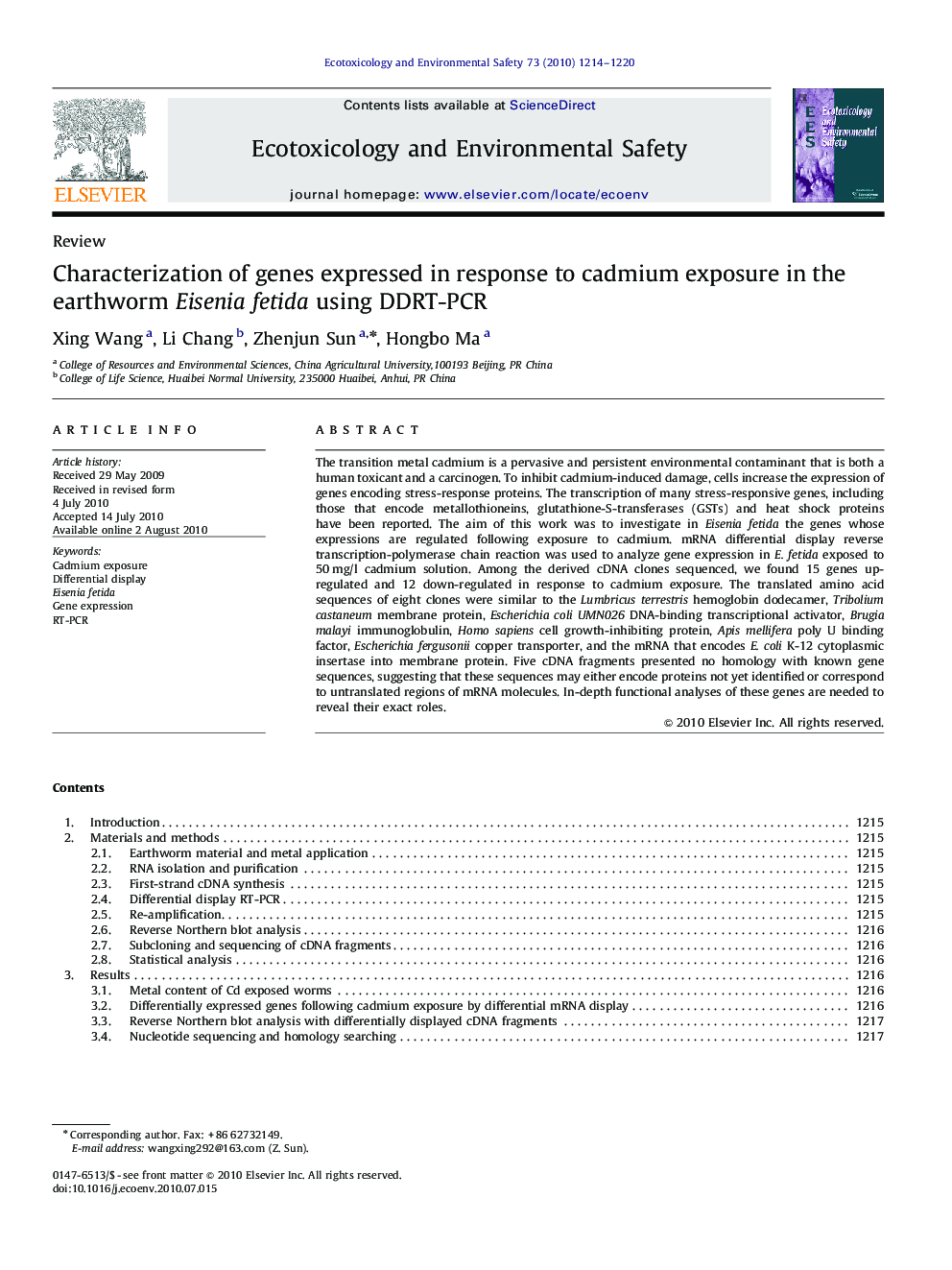| Article ID | Journal | Published Year | Pages | File Type |
|---|---|---|---|---|
| 4421139 | Ecotoxicology and Environmental Safety | 2010 | 7 Pages |
The transition metal cadmium is a pervasive and persistent environmental contaminant that is both a human toxicant and a carcinogen. To inhibit cadmium-induced damage, cells increase the expression of genes encoding stress-response proteins. The transcription of many stress-responsive genes, including those that encode metallothioneins, glutathione-S-transferases (GSTs) and heat shock proteins have been reported. The aim of this work was to investigate in Eisenia fetida the genes whose expressions are regulated following exposure to cadmium. mRNA differential display reverse transcription-polymerase chain reaction was used to analyze gene expression in E. fetida exposed to 50 mg/l cadmium solution. Among the derived cDNA clones sequenced, we found 15 genes up-regulated and 12 down-regulated in response to cadmium exposure. The translated amino acid sequences of eight clones were similar to the Lumbricus terrestris hemoglobin dodecamer, Tribolium castaneum membrane protein, Escherichia coli UMN026 DNA-binding transcriptional activator, Brugia malayi immunoglobulin, Homo sapiens cell growth-inhibiting protein, Apis mellifera poly U binding factor, Escherichia fergusonii copper transporter, and the mRNA that encodes E. coli K-12 cytoplasmic insertase into membrane protein. Five cDNA fragments presented no homology with known gene sequences, suggesting that these sequences may either encode proteins not yet identified or correspond to untranslated regions of mRNA molecules. In-depth functional analyses of these genes are needed to reveal their exact roles.
